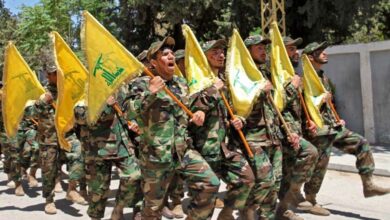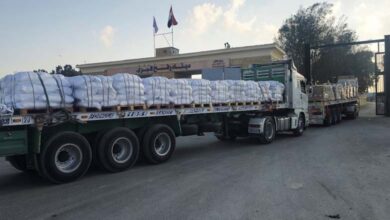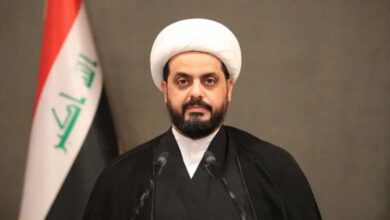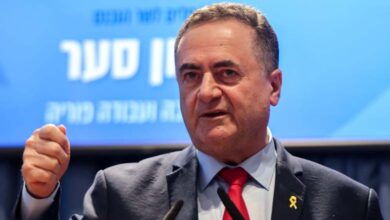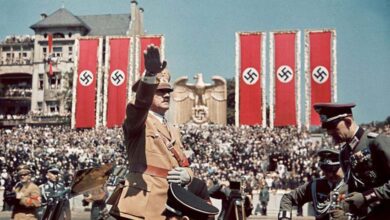The Trump Administration Pushes for Elections in Libya
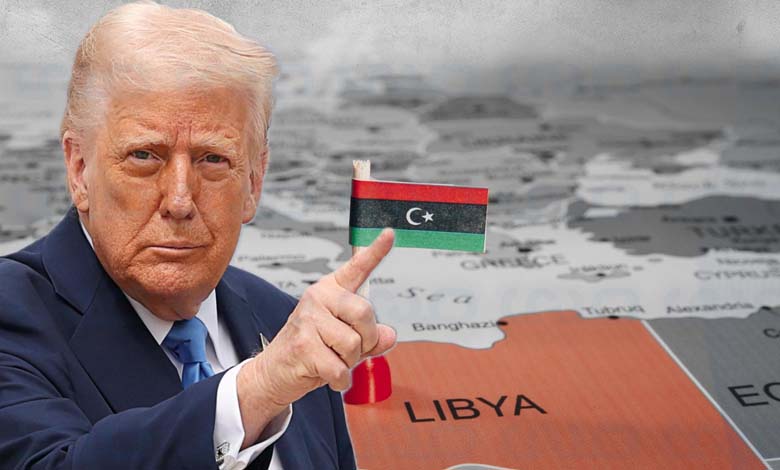
Mossad Boulos, Trump’s advisor, calls for launching the electoral process by organizing direct presidential elections to end the political deadlock.
In a significant shift reflecting Washington’s growing impatience with the continued stalemate in Libya, the U.S. administration has stepped up political pressure on all Libyan factions, urging an end to the prolonged transitional phase and advocating for presidential and then parliamentary elections as the only way to break the gridlock that has paralyzed the country for years.
-
Corruption and Terrorism Financing Drive Washington to Suspend Aid to Libya
-
Washington loses its strategic base for monitoring the coast and Libya with the withdrawal from Niger
These pressures come at a time when room for maneuver is shrinking for political forces that oppose elections or benefit from the current situation, amid signs that international dynamics—led by the United States—are beginning to redraw the political landscape in Libya.
In line with this approach, Mossad Boulos, advisor to former U.S. President Donald Trump on African affairs, called for the immediate launch of the electoral process by holding direct presidential elections followed by parliamentary ones, arguing that this sequence is the most practical way out of the political disagreements that have derailed Libya’s electoral path for years.
-
Libyan tribes warn Dbeibeh against handing over Senussi to Washington
-
Counterfeit Billions in Libya Prompt Dbeibah to Demand Immediate Investigation
In statements reported by local media, Boulos said that the ongoing transitional period has become a heavy burden on Libya’s future and stability, stressing that the only way forward is through free and fair elections based on the people’s will.
Observers note that Boulos’s call to begin with presidential elections aims to break the vicious cycle created by disputes over whether to prioritize parliamentary or presidential elections—a debate repeatedly used to justify postponements, ultimately perpetuating the transitional phase and eroding public trust in the political class.
-
The West and Peace in Ukraine: Conditions to Bridge the Gap Between Ground Realities and Negotiations
-
UN and Regional Efforts to Contain Tensions in Tripoli
The U.S. pressure has not targeted one party alone, but has been particularly evident toward the Government of National Unity led by Abdelhamid Dbeibah, who has faced mounting internal criticism—from Parliament, which has floated the idea of forming a new government, and from citizens who have taken to the streets demanding his resignation, especially following deadly armed clashes in Tripoli.
Nevertheless, Dbeibah has remained firm in rejecting any attempts to restructure the transitional phase, previously stating the urgent need for general elections while warning against efforts to “create new transitional stages” that merely seek to extend the life of current institutions.
-
The Smoke of Tripoli Clashes Still Rises: Political Economic and Security Repercussions
-
Libyans Persist in Street Protests to Oust Dbeibeh — A Message to Tetteh
American pressure now seems to be limiting the ability of parties benefiting from division to dictate terms, particularly amid rising international concern over the continued political deadlock, which fuels security tensions and delays the reunification of state institutions.
These developments come amid growing political and public dissatisfaction with the UN mission, which has been accused by some Libyan factions—including the parallel government led by Osama Hammad—of failing to manage the political process and lacking decisive support for a clear electoral path.
-
Libyan Expert: Dbeibeh’s Move Is Too Late… Militias Have Become Partners in Power
-
Protests in Tripoli Call for Dbeibah and His Government to Step Down
Analysts say such criticism, combined with ambiguity surrounding the mission’s role, has prompted the U.S. to take more direct action—both through public statements and through meetings between Libyan officials and U.S. and European diplomats in Washington—in an effort to refocus Libya’s political trajectory on elections.
Libya has been stuck in political paralysis since the collapse of the electoral process scheduled for December 24, 2021, due to the failure of Libyan factions to agree on electoral laws and candidate eligibility criteria, leading to a total breakdown of the process.
-
Clashes, Divisions, and Delayed Solutions… Libya on the Brink of Explosion
-
Libyan Presidential Council Decrees: A Return Ticket to the Political Spotlight
Since then, the country has remained hostage to incomplete transitional arrangements and divided institutions, under a fragile security truce that has witnessed serious breaches, most notably the recent clashes in Tripoli that ended with the death of Abdul Ghani Al-Kikli (Ghneiwa), one of the capital’s prominent militia leaders.
In this context, the UN Special Representative to Libya, Hanna Tetteh, warned of the fragile security situation in the west of the country, stressing that the current truce could collapse at any moment without a political settlement leading to inclusive and transparent elections.
-
Al-Gharyani Leads Hate Speech against Migrants… and Dbeibeh Plans to Return to War
-
A Political Path and a Race for Influence… Libya at a New Crossroads
Recent international shifts confirm that betting on maintaining the status quo is no longer a viable option, especially as a growing consensus emerges in Western capitals that leaving Libya in limbo will only deepen the chaos and potentially invite further regional intervention.
Opponents of elections—who often cite legal or security obstacles—now face real challenges in justifying their positions, especially amid growing external pressure and a widening disconnect from a Libyan public demanding change.
-
Ghanaian Hanna Tetteh Appointed UN Envoy to Libya after Months of Vacancy
-
Militia Power: The Kidnapping of an Intelligence Officer Denies Europe Access to Libyan Gas
What stands out in this phase is that the United States—previously cautious and observant—has resumed the initiative with clear messages stating that the transitional phase is no longer acceptable and that Libyans must either reach consensus or face increasing international isolation.
Given this American escalation, some believe Libya may soon enter a new phase of negotiations—this time under direct international pressure—that could lead to agreements paving the way for long-awaited elections and an end to the prolonged institutional paralysis.



